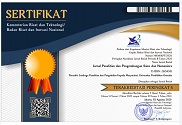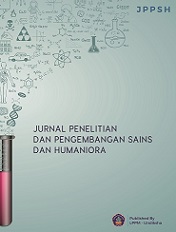Xenophobic Attack in South Africa: an Impediment to Love and Tolerance as Dynamics of African Cultural Unity and The Out
DOI:
https://doi.org/10.23887/jppsh.v8i3.87094Keywords:
Adekunle Ajasin University, Ondo State, NigeriaAbstract
The issues of xenophobia and conflict in Africa remain significant challenges to achieving peace and sustainable development. This study aims to examine the concepts of love and tolerance as essential arts that can serve as a central force for fostering peace in Africa. Love is understood as the divine essence that creates and unites all things, while tolerance is considered its derivative, supporting harmony in human existence. The study employs a qualitative method, with data collected through literature reviews and historical analyses of the colonial impact on the values of love, tolerance, and interpersonal relationships in Africa. The findings reveal that love and tolerance are mutually reinforcing qualities essential for establishing peace and social harmony. However, colonialism prioritized the exploitation of natural resources and the division of African societies, thereby hindering the cultivation of these values. The study concludes by emphasizing the importance of fostering an environment that promotes unity by encouraging Africans to accept one another as brothers, transcending national, religious, and cultural differences. It recommends that African governments develop policies and create environments that allow individuals to live and work across the continent without discrimination, provided legal requirements for migration and residency are met. These measures aim to reduce xenophobic tendencies and promote sustainable peace and development in Africa.
References
Adams, P. C. (2018). Geographies of media and communication II: Arcs of communication. Progress in Human Geography, 42(4), 590–599. https://doi.org/10.1177/0309132517702992.
Alotaibi, H. (2021). A glimpse of tolerance in Islam within the context of al-dhimmah people (Egypt and Baghdad model). Journal of Islamic Thought and Civilization, 11(1), 99–111. https://doi.org/10.32350/jitc.111.06.
Alves, S. (2018). Understanding Intangible Aspects of Cultural Heritage: The Role of Active Imagination. The Historic Environment: Policy & Practice, 9(3–4), 207–228. https://doi.org/10.1080/17567505.2018.1517141.
Angu, P. (2023). Being black and non-citizen in South Africa: Intersecting race, white privilege and afrophobic violence in contemporary South Africa. Sociology Compass, 17(9). https://doi.org/10.1111/soc4.13123.
Bello, Y. (2017). The cultured man as a model for peace building using language as a facilitator. Rossen Publications Ltd.
Cremin, H., Echavarría, J., & Kester, K. (2018). Transrational Peacebuilding Education to Reduce Epistemic Violence. Peace Review, 30(3), 295–302. https://doi.org/10.1080/10402659.2018.1495808.
Esman, M. J. (2019). Ethnic conflict in the Western World. Cornell University Press.
Farman, J. (2015). Stories, spaces, and bodies: The production of embodied space through mobile media storytelling. Communication Research and Practice, 1(2), 101–116. https://doi.org/10.1080/22041451.2015.1047941.
Fetullah, M. . (2011). Islam and Peacebuilding. Istanbul: Numine Matbaacilik Vecilt San Ltd.
Fjelde, H., & Østby, G. (2014). Socioeconomic inequality and communal conflict: A disaggregated analysis of sub-Saharan Africa, 1990–2008. International Interactions, 40(5), 737–762. https://doi.org/10.1080/03050629.2014.917373.
Fredheim, L. H. (2020). Decoupling ‘Open’ and ‘Ethical’ Archaeologies: Rethinking Deficits and Expertise for Ethical Public Participation in Archaeology and Heritage. Norwegian Archaeological Review, 53(1), 5–22. https://doi.org/10.1080/00293652.2020.1738540.
Gilabert, P. (2020). Précis of Human Dignity and Human Rights. Journal of Global Ethics, 16(3), 283–287. https://doi.org/10.1080/17449626.2020.1861062.
Gülen, M. F. (2010). Toward Global Civilization Love Tolerance. Tughra books.
Hymel, S., & Darwich, L. (2018). Building peace through education. Journal of Peace Education, 15(3), 345–357. https://doi.org/10.1080/17400201.2018.1535475.
Karimullah, S. S., & Islami, A. (2023). Internalization of Islamic Moderation Values in Building a Civilization of Love and Tolerance. Al-Insyiroh: Jurnal Studi Keislaman, 9(1), 94–125. https://doi.org/10.35309/alinsyiroh.v9i1.227.
Khadiagala, G. M., & Nganje, F. (2016). The evolution of South Africa’s democracy promotion in Africa: from idealism to pragmatism. Cambridge Review of International Affairs, 29(4), 1561–1581. https://doi.org/10.1080/09557571.2015.1058655.
Langa, M., & Kiguwa, P. (2016). Race-ing xenophobic violence: Engaging social representations of the black African body in post-apartheid South Africa. Agenda, 30(2), 75–85. https://doi.org/10.1080/10130950.2016.1222086.
May, S. (2020). Heritage, endangerment and participation: alternative futures in the Lake District. International Journal of Heritage Studies, 26(1), 71–86. https://doi.org/10.1080/13527258.2019.1620827.
Mutanda, D. (2017). Xenophobic violence in South Africa: mirroring economic and political development failures in Africa. African Identities, 15(3), 278–294. https://doi.org/10.1080/14725843.2017.1291325.
Muthaliff, M. M. A., Abd Rahman, M. R., Mahyuddin, M. K., Najaa’Mokhtar, A., & Ahmad, Y. (2016). Religious harmony and peaceful co-existence: a quranic perspective. ‘Abqari Journal, 7(1), 47–62. https://doi.org/10.33102/abqari.vol7no1.148.
Nadasdy, P. (2021). How many worlds are there? Ontology, practice, and indeterminacy. American Ethnologist, 48(4), 357–369. https://doi.org/10.1111/amet.13046.
Palmer, Z. D. (2022). “I’m going to love and tolerate the shit out of you”: Hybrid masculinities in the brony community. Men and Masculinities, 25(1), 87–105. https://doi.org/10.1177/1097184X211031969.
Pellizzato, G. (2024). Education for a New Global Civilization. Critical Hermeneutics, 8(1), 333–367. https://doi.org/10.13125/CH/6314.
Rahmani, M., Hoseini, M., & Hasany Jalilian, M. R. (2017). Studying the Flow of Divine Love Theory in Persian Mystical Texts: From Advent to the Ninth Century (AH). Mystical Literature, 9(16), 23–54. https://doi.org/10.22051/jml.2018.19765.1490.
Silova, I., Rappleye, J., & You, Y. (2020). Beyond the Western horizon in educational research: Toward a deeper dialogue about our interdependent futures. ECNU Review of Education, 3(1), 3–19. https://doi.org/10.1177/2096531120905195.
Su, J. (2018). Conceptualising the subjective authenticity of intangible cultural heritage. International Journal of Heritage Studies, 24(9), 919–937. https://doi.org/10.1080/13527258.2018.1428662.
Sulaiman, K. U. (2021). An Islamic perspective on peaceful coexistence. European Journal of Theology and Philosophy, 1(5), 29–43. https://doi.org/10.24018/theology.2021.1.5.50.
Tella, O. (2016). Understanding Xenophobia in South Africa: The Individual, the State and the International System. Insight on Africa, 8(2), 142–158. https://doi.org/10.1177/0975087816655014.
Williams, D. U. (2015). How useful are the main existing theories of ethnic conflict? Academic Journal of Interdisciplinary Studies, 4(1), 147–152. https://doi.org/10.5901/mjss.2015.v4n1p147.
Yingi, E., Ncube, T., & Benyera, E. (2024). Situating Dashed Prospects of Independence into the Xenophobic Narrative in South Africa. Journal of Black Studies, 55(1), 68–89. https://doi.org/10.1177/00219347231210578.
Downloads
Published
Issue
Section
License
Copyright (c) 2024 Yekeen Bello, B. M. Tunde-Awe, Yunus Aliyu

This work is licensed under a Creative Commons Attribution-ShareAlike 4.0 International License.
Authors who publish with the Jurnal Penelitian dan Pengembangan Sains dan Humaniora agree to the following terms:
- Authors retain copyright and grant the journal the right of first publication with the work simultaneously licensed under a Creative Commons Attribution License (CC BY-SA 4.0) that allows others to share the work with an acknowledgment of the work's authorship and initial publication in this journal.
- Authors are able to enter into separate, additional contractual arrangements for the non-exclusive distribution of the journal's published version of the work (e.g., post it to an institutional repository or publish it in a book), with an acknowledgment of its initial publication in this journal.
- Authors are permitted and encouraged to post their work online (e.g., in institutional repositories or on their website) prior to and during the submission process, as it can lead to productive exchanges, as well as earlier and greater citation of published work. (See The Effect of Open Access)









